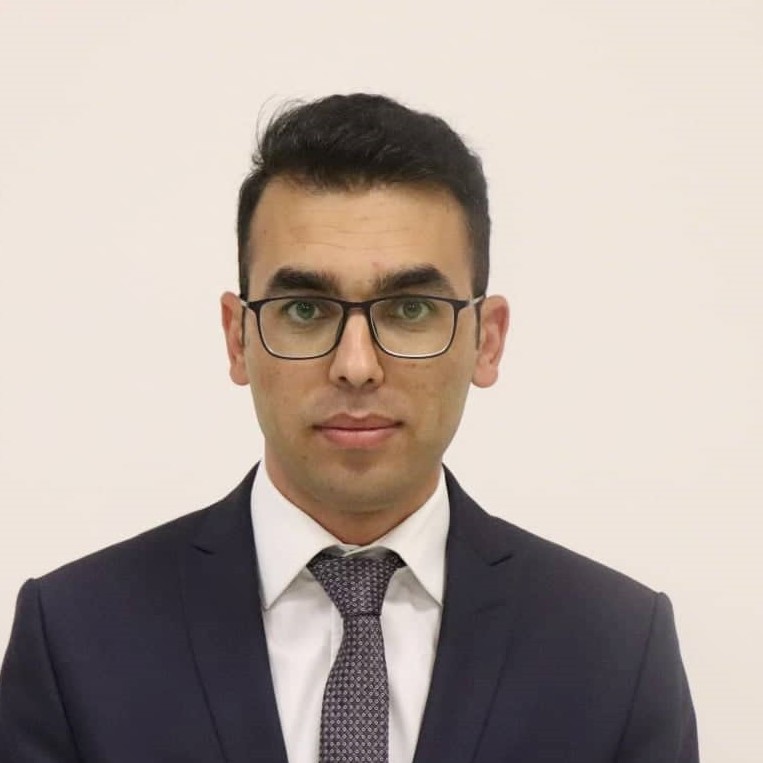 2022 / 01 / Jan
2022 / 01 / Jan
On December 11, 2021, the Iraqi government celebrated the centenary of the Iraqi state, through activities that embodied the events that the country went through a century after the founding of the Iraqi state (1921-2021) and those that represent social and cultural diversity. The hundred years that passed in Iraq witnessed a series of major fluctuations from the monarchy to the republic, passing through the eras of nationalist, communist, and Baathist movements, the last of which was the democratic system that was established after 2003, which witnessed the spread of terrorism and the emergence of religiously oriented parties at the forefront of the political scene. The historical turning points that the Iraqi state went through affected all Iraqi factions, including the Turkmen, as the Turkmen suffered from marginalization under the monarchy, especially in Kirkuk, despite their playing major roles in laying the necessary and modern foundations for government institutions, as a result of their previous experience in managing the Ottoman state. The Turkmen officers who were serving in the Ottoman army assumed an important responsibility in establishing the nucleus of the Iraqi army. Some of them assumed important responsibility in Palestine in the 1948 war, such as Omar Ali Bayraktar and Mustafa Ragheb Pasha.
During the monarchy period, the Turkmen community was exposed to many injustices. In 1920, the Turkmen of Tal Afar were subjected to the Qajjaq massacre by the British occupation. It is believed that the Qaqqaaj events were part of and beginning of the twentieth revolution. Four years after the events of Qajaqaj, on May 4, 1924, the Turkmen were subjected to the Kirkuk massacre, by the Libyan forces that were allied with the British. In this event, 56 Turkmen lost their lives and 110 people were injured. In 1946, 20 Turkmen workers were killed in oil companies in Kirkuk, as a result of their objection to the difficult working conditions. A year after the establishment of the Iraqi Republic under the leadership of Abdul Karim Qasim, the Turkmen were subjected to the Kirkuk massacre on July 14, 1959, in which more than 70 Turkmen were killed, including Turkmen leaders such as Atta Khairallah. During the period of Baath's rule, the Turkmen were subjected to genocide in the Al-Tin Kubri district of Kirkuk Governorate, in which more than 100 Turkmen were killed.
The head of the Iraqi Turkmen Front, Hassan Turan, attended the ceremony organized by the Iraqi government on December 11, 2021, as a representative of the Turkmen. This celebration, which was joined by the Iraqi government, was confirmation that Iraq began a new era 100 years ago after it struggled against the British occupation, in which the Turkmen played a major role. They must have an important role in the next stage as well, and this is what Mr. Turan emphasized in his statement on this occasion: “The centenary of the founding of the Iraqi state is a great opportunity for us to affirm our comprehensive national identity, strengthen partnership in all aspects of the state, and enable the Iraqi components to exercise their role.” The National Council aims to achieve a partnership that guarantees the rights of all, and we all share in the great sacrifices we have made to preserve the unity of our Iraqi homeland, and the Turkmen component will continue to defend the unity of Iraq, land and people, in all forums and entitlements.
This ceremony came at a time when Iraq was going through one of its most important stages after 2003, as Iraq held its first early electoral process that brought results different from the previous one, with the Sadrist movement leading the other parties by a large margin, which called for a national majority government, which it is hoped will witness within the next few days. Or in the coming weeks, there will be political movements to establish a government that is seen as having emerged as a result of the early elections demanded by the November movement at the end of 2019. In addition to these two points, American combat forces are expected to leave Iraq at the end of 2021.
Turkmen expectations in the next stage
After announcing the results of the early elections that took place on November 10, 2021, Iraq entered into a crisis of accepting the results due to the objection of the parties that lost the elections, and the division of the Shiite parties into those calling for the establishment of a national majority government and others calling for a consensus government. The Turkmen of Iraq, who suffered for long decades of injustice and marginalization by successive regimes after the establishment of the Iraqi state, after 2003 were subjected to many injustices by terrorist organizations such as Al-Qaeda, ISIS, and the PKK, For this reason the Turkmen hope that in the coming period, the political parties controlling the scene will work The political process must evaluate the course of the political process based on quotas, which has caused widespread corruption and nepotism in state institutions, which has hindered them from performing their functions as required. At the same time, the Turkmen demand real participation of the Turkmen in the decision-making process based on competence, as they are an essential element of Iraqi society, within the framework of pluralistic democracy. Because the Turkmen are on the dividing line between the Kurdish and Arab societies in Iraq, they have contributed greatly to preventing any attempt at division in the Iraqi state. In addition, the Turkmen areas are considered areas of intersection between the north and the south and the east and the west. They have great importance in fighting the linking of Iraqi cities to each other thus Contributing to maintaining order and combating terrorism and smuggling operations. This is why the Turkmen must have a say in the governance process in Iraq, not only because they are the third largest nationality in Iraq, but also because they are one of the most important factors of stability in Iraq and in the oil-rich cities that enjoy national, religious and sectarian diversity, due to the lack of representation of the Turkmen in the cabinet of the former Prime Minister, Mr. Haider. Al-Abadi and Mr. Adel Abdul-Mahdi, and the fact that their representation in Mr. Mustafa Al-Kadhimi’s government was limited to a Ministry of State made the Turkmen community feel marginalized. Therefore, the Turkmen parties sought to work to unify the Turkmen ranks and work to unify the Turkmen discourse, which suffered a lot of fragmentation and division after 2003. Despite the absence of anyone to represent Turkmen art at a celebration held by the Iraqi government in Baghdad, on December 7, 2021, especially since the Turkmen, through the Turkish Bayat clan, added the Bayat maqam to Iraqi singing art. However, we see that it represents an important opportunity for the Iraqi parties to emphasize the necessity of real participation of all Iraqi sects in The decision-making process in Iraq based on citizenship.
On the other hand, the Turkmen view this stage as one of the most dangerous stages that could affect the future of their presence in Iraq, due to the conflict that exists between the government forces and the Peshmerga forces, as the latter is trying to return to the areas it lost in October 2017, under the name Fighting the ISIS terrorist organization in the security vacuum areas, with the increase in ISIS attacks in Iraq targeting Turkmen cities and cities that separate the region from the center.
In addition to all of the above, the Turkmen community is still suffering from the devastation caused by the terrorist organization ISIS between 2014 and 2017, as many Turkmen villages and cities in Mosul, Salah al-Din, and Diyala have not been able to return to their homes, and the Turkmen cities have not been able to obtain the compensation that they received. As a result of the significant damage caused by ISIS operations as a result of their resistance to the ISIS project. The Turkmen cities that largely stopped the advance of ISIS towards southern Iraq and the oil-rich areas of Kirkuk are still unable to receive compensation for the devastation caused by terrorism in their cities. The city of Taza Khurmatu suffered from the use of chemical weapons, Amerli from siege and daily bombardment for nearly 80 days in 2014, and Tuz Khurmatu from daily targeting by car bombs for a long period until the city’s residents took control of security in their hands in 2014. Therefore, the state must allocate The Iraqi government budget for 2022 including funds for the reconstruction of Turkmen cities, and to work to provide the most necessities of life, including schools, hospitals, and the provision of safe water. The Turkmen humanitarian situation is still tragic, as 1,200 Turkmen people from the Turkmen city of Tal Afar are still missing, including 600 women. Only 131 of the women who were kidnapped by ISIS have been freed.
In the end, it can be said that the Turkmen were able to maintain their presence as the third largest nationality in Iraq during the century of the Iraqi state’s life, despite marginalization and policies of demographic change, whether before or after 2003. However the problem of the policy of marginalizing the Turkmen, which accompanied the early founding of the state, still exists today. There must be a serious will in Baghdad to guarantee a real partnership through decisive solutions that serve all Iraqis, including the Turkmen, to maintain popular cohesion, especially if we know that Iraq is the only Arab country that was invited to the Democratic Summit Conference organized by the United States with more participation. From 100 countries, two days before the centenary celebration of the Iraqi state. Since the Turkmen have always been among the greatest supporters of the establishment of an independent state, as they made many sacrifices by demanding justice and opposing tyranny, both during the period of the monarchy and the republic and after 2003, we believe they must obtain their national rights by participating in the administration of the state, whether at the government level. Central or at the regional and governorate level. Today, the Turkmen enjoy great importance in working to preserve the unity of Iraq, and the Turkmen community contributes mainly to Iraq’s progress towards the democratic process, through their pressure to demand their rights and the rights of other components. The Iraqi government is required to adopt a policy of containing the Turkmen, by combating rumors that accuse the Turkmen of being subservient to Turkey, and making room for all components of society to enjoy political and cultural rights. In addition, human rights in Turkmen cities must be taken into account through the reconstruction of Turkmen cities to open the door for the return of Turkmen to their areas, compensation for Turkmen survivors of ISIS, and research into the fate of missing Turkmen.
Adel Zein El Abidine
Research assistant in Turkmen affairs (Iraqi Turkmen) at the Center for Middle Eastern Studies (ORSAM) and doctoral student at Selcuk University in the field of constitutional law.

writer